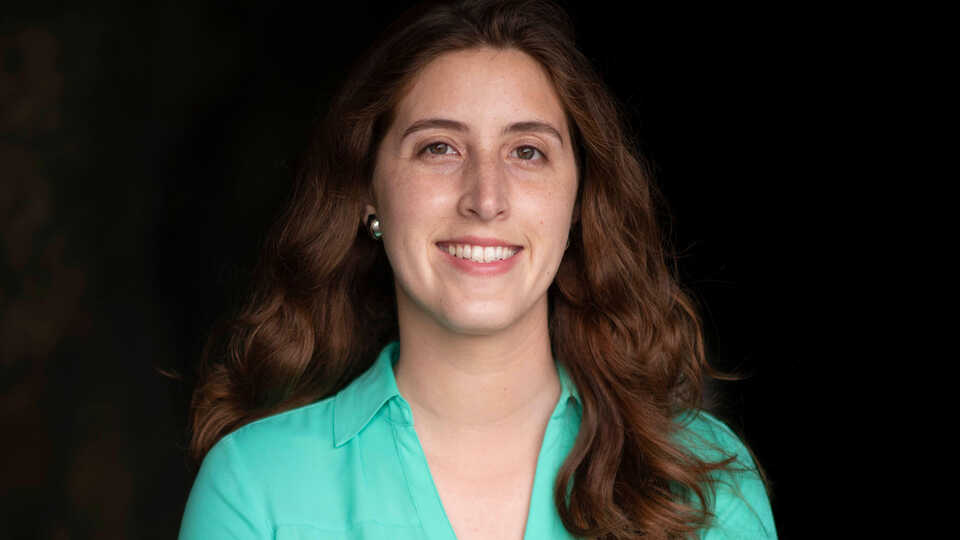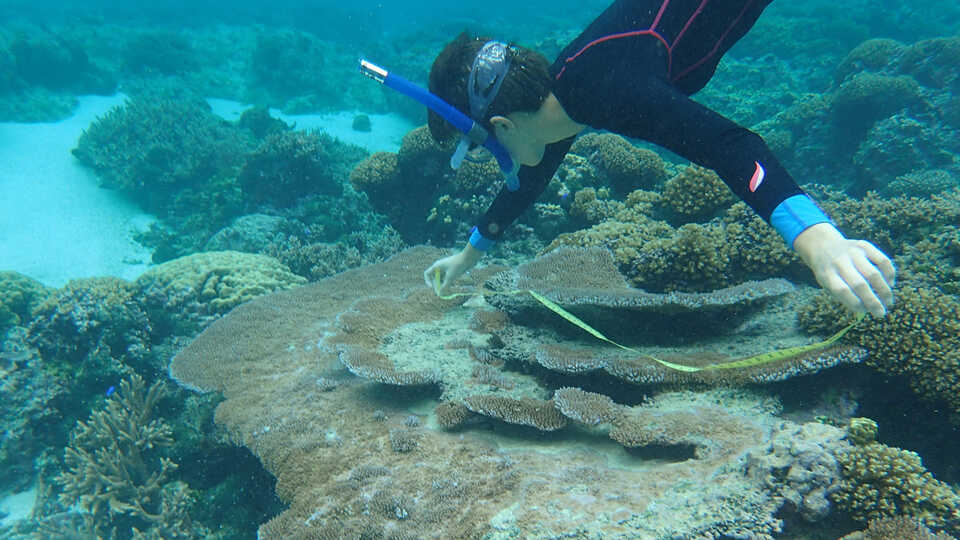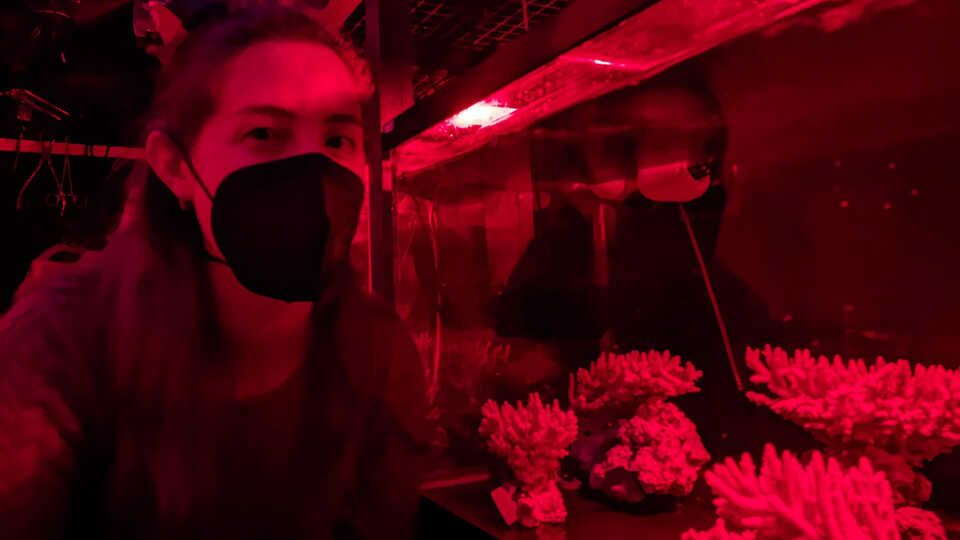The California Academy of Sciences is a renowned scientific and educational institution with a mission to regenerate the natural world through science, learning, and collaboration. Based in San Francisco’s Golden Gate Park, it is home to a world-class aquarium, planetarium, and natural history museum, as well as innovative programs in scientific research and environmental education—all under one living roof. Museum hours are 9:30 am – 5:00 pm Monday – Saturday, and 11:00 am – 5:00 pm on Sunday. Admission includes all exhibits, programs, and shows. For daily ticket prices, please visit www.calacademy.org or call (415) 379-8000 for more information.
Biologist Elora López-Nandam recognized for research on coral resilience to climate change
SAN FRANCISCO, CA (December 1, 2021) — California Academy of Sciences’ researcher Elora López-Nandam, PhD, was honored today as one of Forbes Magazine’s Science 30 Under 30 for her research into the resilience of corals to warming oceans in the face of climate change. López-Nandam’s research is part of the Academy’s Hope for Reefs initiative, which aims to reverse the rapid decline of Earth’s coral reefs in this generation and regenerate these vital ecosystems.
“I was thrilled and honored when I found out I was chosen as one of Forbes’ 30 Under 30,” López-Nandam says. “It’s a powerful acknowledgment that people care about corals and the science the California Academy of Sciences is leading to help protect them. We hear so often about the problems facing coral reefs, but it’s just as important to shed light on some of the solutions.”
López-Nandam conducts much of her research in the Academy’s Coral Spawning Lab, one of just a few facilities in the world where coral successfully reproduce in an aquarium. Since corals rely on cues from the environment, such as temperature and the moon cycle, to reproduce, getting them to spawn in a lab setting requires round-the-clock monitoring and care from a dedicated team of biologists.
“Elora has been such an amazing colleague and innovative thinker,” says Academy Curator Rebecca Albright, PhD, who helped establish and leads the Coral Spawning Lab. “I love her passion for pursuing meaningful questions with real-world applications. I’m just over the moon about her receiving this honor.”
Successful lab-based spawning opens up whole new avenues of scientific research, including López-Nandam’s work analyzing what genes allow some corals to survive even amidst rising ocean temperatures. Identifying the hardiest corals can then inform conservation efforts, ensuring that resources are allocated for breeding individuals that are more heat-tolerant and resilient to climate change.
“Genetics and selective breeding will have a large part to play in regenerating healthy coral reefs,” López-Nandam says. “Just how big of a part is one of the questions we’re hoping to answer through the Coral Spawning Lab.”
While López-Nandam is overjoyed at being honored by Forbes, the celebrations will have to wait. The corals in the Coral Spawning Lab are expected to undergo their annual spawn any day now and once they do, she and her colleagues must move quickly to gather the embryos for their research.
“I’ve been on-site at the lab every day for weeks waiting for the big event,” says López-Nandam. “The best celebratory present for me would be for the corals to spawn today so I can get my experiments underway."
The Institute for Biodiversity Science and Sustainability at the California Academy of Sciences is at the forefront of efforts to regenerate the natural world through science, learning, and collaboration. Based in San Francisco, the Institute is home to more than 100 world-class scientists, state-of-the-art facilities, and nearly 46 million scientific specimens from around the world. The Institute also leverages the expertise and efforts of more than 100 international Associates and 450 distinguished Fellows. Through expeditions around the globe, investigations in the lab, and analysis of vast biological datasets, the Institute’s scientists work to understand the evolution and interconnectedness of organisms and ecosystems, the threats they face around the world, and the most effective strategies for ensuring they thrive into the future. Through deeply collaborative partnerships and innovative public engagement initiatives, they also guide critical conservation decisions worldwide, inspire and mentor the next generation of scientists, and foster responsible stewardship of our planet.
Press Contacts
If you are a journalist and would like to receive Academy press releases please contact press@calacademy.org.
Digital Assets
Hi-res and low-res image downloads are available for editorial use. Contact us at press@calacademy.org to request access.


